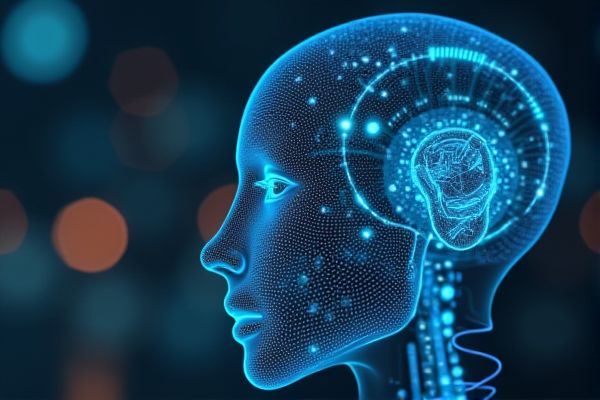
AI transforms education by personalizing learning experiences, adapting to individual student needs, and identifying strengths and weaknesses. Intelligent tutoring systems offer immediate feedback, helping students grasp complex concepts at their own pace. Instructors leverage AI analytics to gain insights into student performance, allowing for tailored instructional strategies. Automating administrative tasks with AI frees educators to focus more on teaching and engaging with students.
AI usage in education innovation
Personalized Learning
AI usage in education innovation creates opportunities for personalized learning experiences tailored to individual student needs. For example, platforms like DreamBox Learning utilize AI algorithms to adapt math instruction based on each learner's pace and understanding. This personalized approach increases student engagement and may lead to improved academic performance. The potential for AI to analyze vast amounts of educational data offers a chance to identify effective teaching strategies and enhance curriculum development.
Intelligent Tutoring Systems
Intelligent Tutoring Systems (ITS) can enhance personalized learning experiences by adapting content to individual student needs. These systems analyze student performance data to identify strengths and weaknesses, allowing for targeted interventions. Institutions like Carnegie Mellon University have successfully implemented ITS to improve academic outcomes. The potential advantages include increased student engagement, improved retention rates, and a more efficient learning process.
Automated Grading
Automated grading can significantly enhance educational efficiency by providing timely feedback to students. For instance, AI systems can analyze test answers and assignments with accuracy, which frees up educators to focus on personalized teaching. This technology potentially reduces the administrative burden, allowing institutions like Stanford University to allocate resources more effectively. The possibility of minimizing biases in grading through consistent algorithms also presents an advantage for fairer assessments.
Educational Data Analytics
AI usage in education can enhance personalized learning experiences, potentially improving student engagement and outcomes. Educational data analytics can identify patterns in student performance, allowing educators to tailor their teaching methods accordingly. Institutions like Stanford University are exploring these advancements to foster better learning environments. The possibility of leveraging AI tools to predict student success rates presents a compelling advantage for educational stakeholders.
Adaptive Content Delivery
AI in education can enhance adaptive content delivery, tailoring materials to individual learning styles and paces. For example, platforms like Khan Academy utilize algorithms to customize learning experiences, potentially improving student engagement and retention rates. This technology offers the chance for educators to provide more personalized feedback, thereby addressing unique learning needs effectively. By leveraging AI, institutions can optimize educational outcomes and increase accessibility to quality resources for diverse learners.
Virtual Reality Classrooms
AI in education can enhance learning experiences through personalized virtual reality classrooms. For instance, students studying biology at institutions like Stanford can engage in immersive simulations to better understand complex systems. This technological integration may increase student engagement and retention of information. The potential to adapt lessons based on individual learning styles presents significant advantages for diverse learner populations.
Enhanced Student Engagement
AI in education has the potential to enhance student engagement by personalizing learning experiences. For instance, platforms like Khan Academy utilize AI algorithms to adapt content to students' individual learning paces. This tailored approach can increase motivation and participation in the learning process. Schools applying such technology may see improvements in student outcomes and overall interest in subjects.
Natural Language Processing in Learning
AI usage in education can enhance personalized learning experiences, adapting to individual student needs. Natural Language Processing (NLP) tools can facilitate language learning by providing real-time feedback on grammar and pronunciation. These technologies create opportunities for improved engagement and understanding among students, particularly in language acquisition. Institutions like Stanford University are exploring AI-driven applications that may lead to more effective teaching strategies and educational outcomes.
Predictive Student Performance
AI in education can enhance predictive student performance by analyzing learning patterns and behaviors. For example, institutions like Stanford University utilize AI algorithms to identify at-risk students, enabling timely interventions. This capability increases the chances of academic success through tailored support strategies. By leveraging data-driven insights, educators can optimize curricula to better cater to individual learning needs.
AI-Driven Curriculum Development
AI-driven curriculum development can enhance personalized learning experiences for students. By analyzing individual learning patterns, institutions like Stanford University can create tailored educational content that meets diverse needs. This approach may increase student engagement and improve retention rates. The possibility of integrating AI tools like adaptive learning systems holds the potential for significant advancements in educational outcomes.
 techknowy.com
techknowy.com